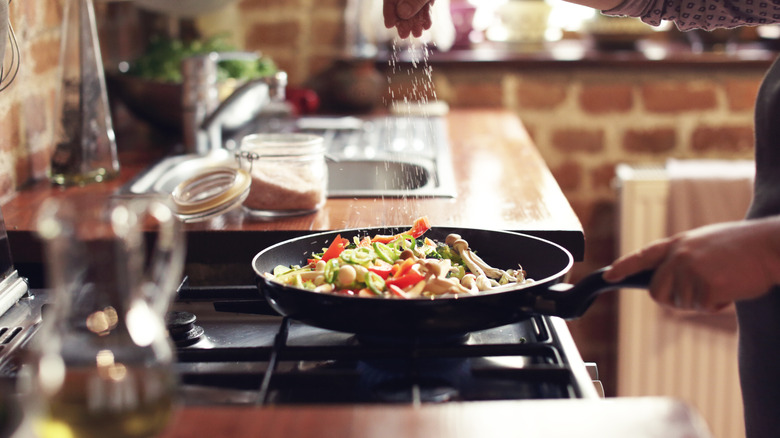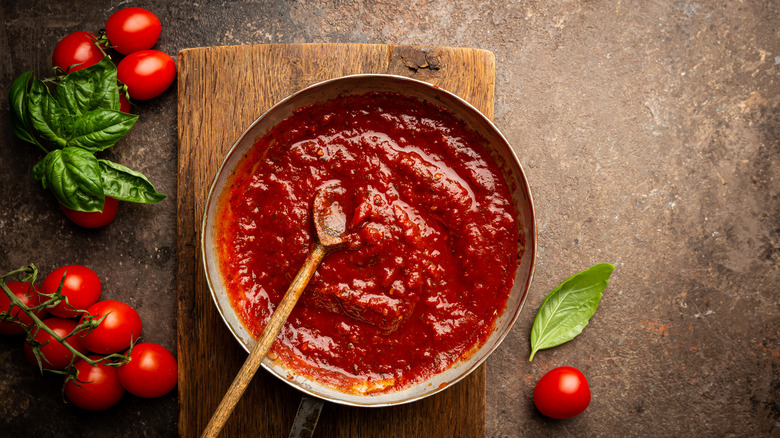What Does It Mean To Season Your Food In Layers?
If there's one piece of advice we could instill in every cook, it would be this: Season your food. Even the most foolproof recipes can fall flat if they're not properly salted, balanced with acid, enriched with fat, and brightened with herbs.
That being said, knowing when to season your food is equally crucial. If you wait until a pot of chili is nearly complete to add your first pinch of salt, you're too late. And if you squeeze fresh lemon into your chicken broth before it's started to simmer, that poor, delicate lemon juice will overcook and lose its bright flavor.
Fat, aromatics, and salt should generally make their initial appearances early on in the cooking process, while sources of acid and fresh herbs should come later, once your dish is nearly finished. Recipes can vary, but abiding by this general rule can help you layer a dish with complexity.
Trying it out
Consider a tomato-based, Sunday-style pasta sauce. What makes it so rich? What sets it apart from a bland heap of cooked tomatoes? You already know the answer: Seasoning in layers.
Let's dissect this sauce, starting with fat and aromatics. Sizzling garlic and onion in olive oil essentially unlocks the aroma and flavor of these alliums, adding a nuanced fragrance to your sauce. This is a good moment to add dried herbs — a sprig of rosemary or a bay leaf — since they'll need time to infuse into the sauce. Add raw tomato puree and salt immediately, establishing a well-seasoned base. As the sauce bubbles, add more salt to taste. If you so choose, try tossing in a glug of olive oil for more richness.
Then comes acid. If you plan on adding a splash of white wine, do so toward the end of the cooking process. Be sure to give the wine ample time to reduce in your sauce, evaporating its alcohol and softening its flavor. Other squeezes of acid, like lemon, can happen in the final minutes of the cooking process to maintain that hint of brightness. Fresh herbs, like chopped parsley or torn basil, are your last stop on the seasoning tour. Add these once your sauce is removed from heat to prevent these delicate leaves from wilting. Apply this framework to any number of recipes — soups, sauces, curries — and your dishes will be so well-balanced, you'll start calling them Simone Biles.

